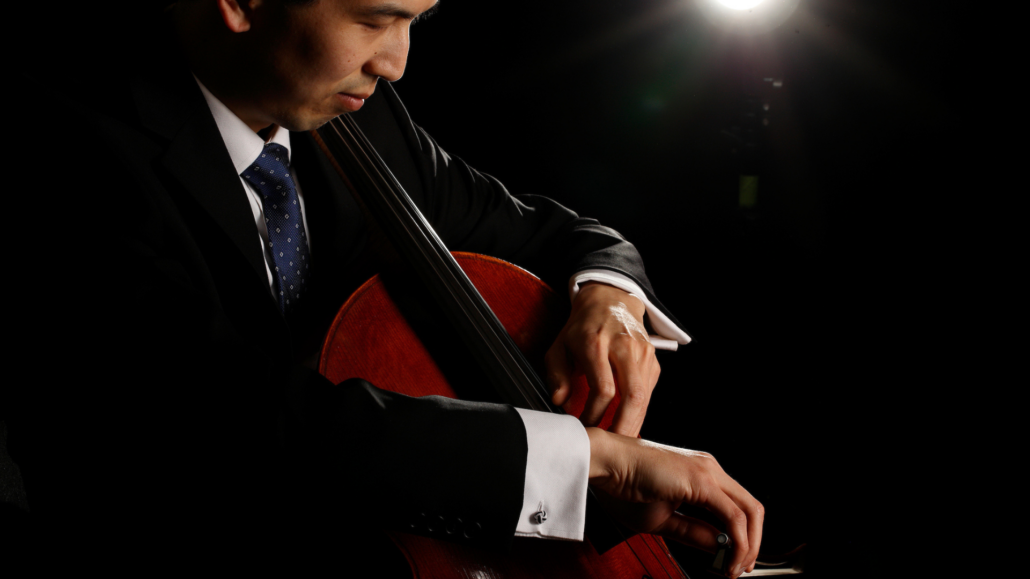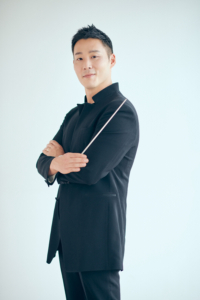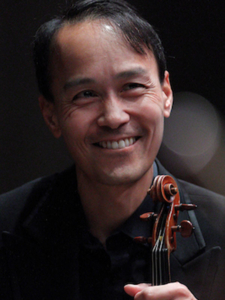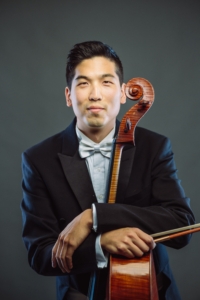DVOŘÁK’S NEW WORLD SYMPHONY
It would be easy, so easy, to glance at this program and conclude that these are three orchestral works that concern themselves with love—but don’t let the proximity of Valentine’s Day fool you. Romantic these might be, but romantic they are not.
Composed in 1880, 1909, and 1893, respectively, they each embody the Romantic ethos in art: the intense subjectivity, the striving towards the sublime, and the overt emotionality that characterized music in the last half of the 19th century and at the dawn of the 21st. But romantic love, and especially the love between men and women, is not what’s being celebrated here.
Of course, Pyotr Ilyich Tchaikovsky’s Romeo and Juliet Fantasy Overture takes its theme from William Shakespeare’s famous play, the one in which two hormone-besotted teenagers decide that life without each other would be impossible, and proceed to make it so in notably bloody fashion. Musical adaptations of Shakespeare are almost a hallmark of Romanticism, especially Russian Romanticism, and in this Tchaikovsky was no exception. Following his first stab at a Romeo and Juliet suite, he crafted a Hamlet overture-fantasia that the actor and director Simon Callow has described as “a massively impressive portrait of a Romantic outsider”, and a symphonic fantasia on The Tempest in which the lovers Ferdinand and Miranda successfully circumvent storm, shipwreck, and physical temptation to achieve married bliss.
Perhaps tellingly, Tchaikovsky outlined The Tempest in a 10-day blizzard of inspiration, recalling later that he wrote “as if under the influence of some supernatural force”. Although no less inspired, the Romeo and Juliet Fantasy Overture had a far more protracted gestation. At the suggestion of his friend and mentor Mily Balakirev, who had already composed a King Lear overture of his own, the younger musician offered his initial draft to the public in March of 1870. It was not a success.
“After the concert we dined,” Tchaikovsky wrote. “No one said a single word to me about the overture the whole evening. And yet I yearned so for appreciation and kindness.”
Undeterred, he revised the work in 1872 and then again in 1880—and that is the version we’ll encounter here.
It’s tempting to conclude that in the 10 years between first draft and public acclaim. Tchaikovsky removed some of Shakespeare’s drama and substituted some of his own. Sections of the score, most notably the meditative opening—meant to convey the character of the young lovers’ counselor, Friar Laurence—and a vividly accurate depiction of the sword fight between clashing Montagues and Capulets, reflect the Bard with considerable fidelity. Elsewhere, though, it seems that Tchaikovsky is speaking about forbidden love rather than hearts-and-flowers devotion, and doing so as one who was himself never able to publicly express his true feelings, being a gay man in a censorious and conservative milieu.
If we love Tchaikovsky, we must accept this as one possible truth.
Love in Camille Saint-Saëns’ The Muse and the Poet is somewhat harder to fathom, and here a little knowledge is a dangerous thing. What little knowledge we have been able to glean indicates that the work’s title, so evocative of the interplay of souls, was affixed after the fact by the composer’s publisher, Jacques Durand, as a marketing tool. Saint-Saëns himself left little record of his thoughts during the compositional process, so there’s no definitive counter-theory to advance, but let’s go out on a limb and argue that the work’s intertwined soloists, cello and violin, represent the two children that the composer lost in his 40s, one to illness and the other to accident. As witness, we can call upon Saint-Saëns’ musical nemesis Claude Debussy. “I have a horror of sentimentality,” he once said, “and cannot forget that its name is Saint-Saëns.”
Melancholy is undeniably the dominant emotion in this symphonic poem, yet honest sorrow drives abject sentimentality away—and the result is a moving declaration of love, albeit a sad one.
Love of home, in contrast, is one of two dominant themes in Antonín Dvořák’s Symphony No. 9 in E minor, the other being an enthusiastic endorsement of the energy and freedom that the Bohemian composer found during his three-year tenure as director of the National Conservatory of Music of America, in New York City. The call of Dvořák’s native terrain eventually outshone the burgeoning attractions of the Big Apple, and with good reason: many other Central European composers followed Dvořák’s lead in codifying the folk musics of the Bohemian forests and the Balkan hills, but few gave these such world-wide appeal as he did in his “New World” symphony.
The British visionary William Blake once famously concluded that men and women alike sought fulfillment in “the lineaments of Gratified Desire”. Who can argue with that? But there are many other forms of love, not all of them gratifying or desirable, and those are also worth meditating upon—even as Valentine’s day draws nigh.
Notes by Alex Varty





